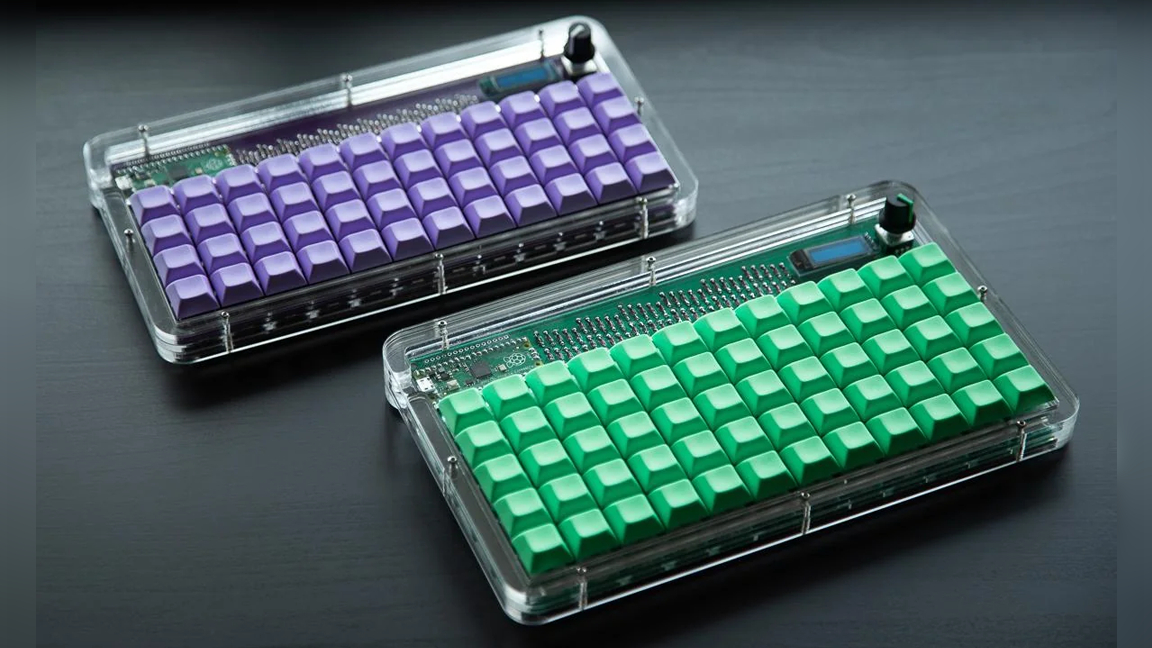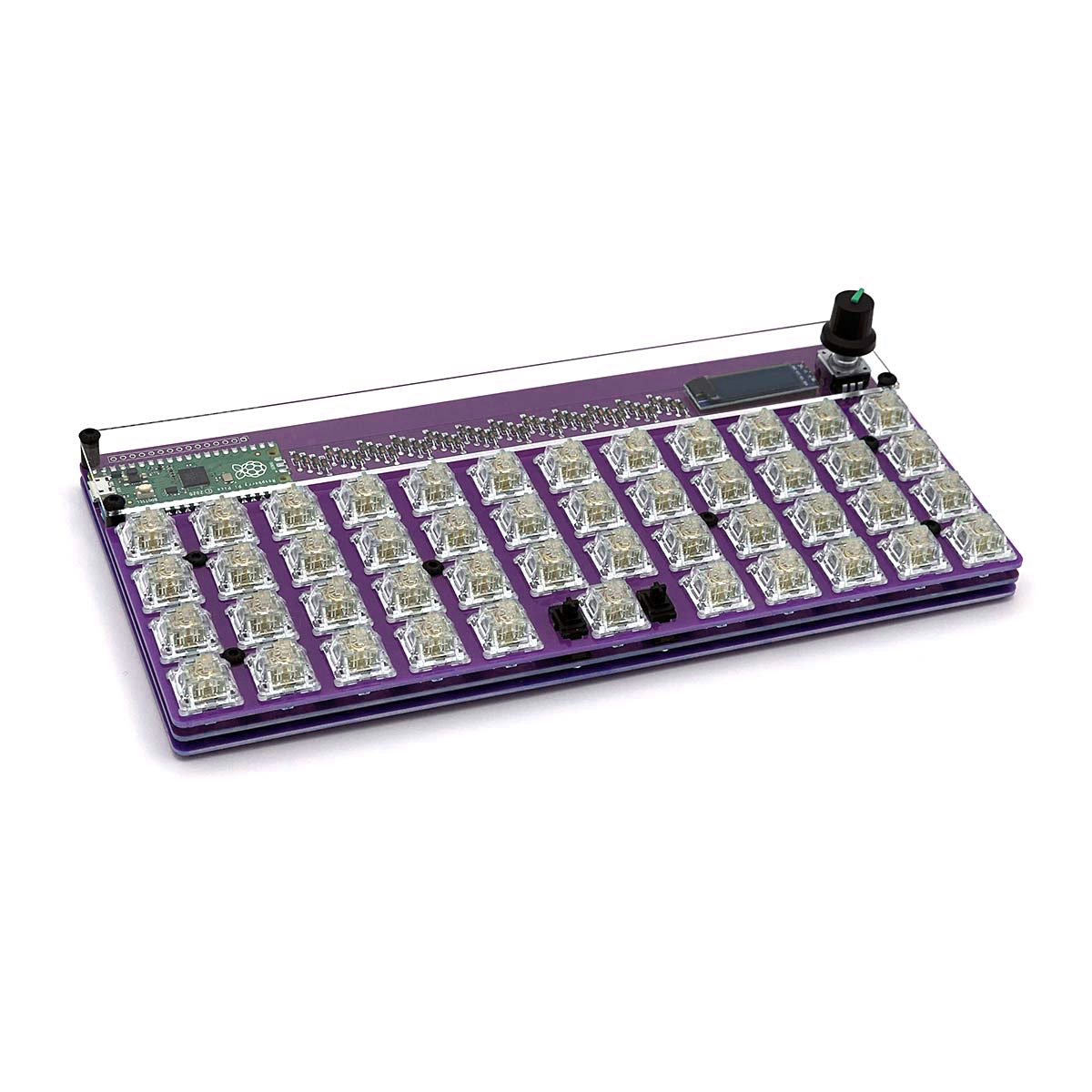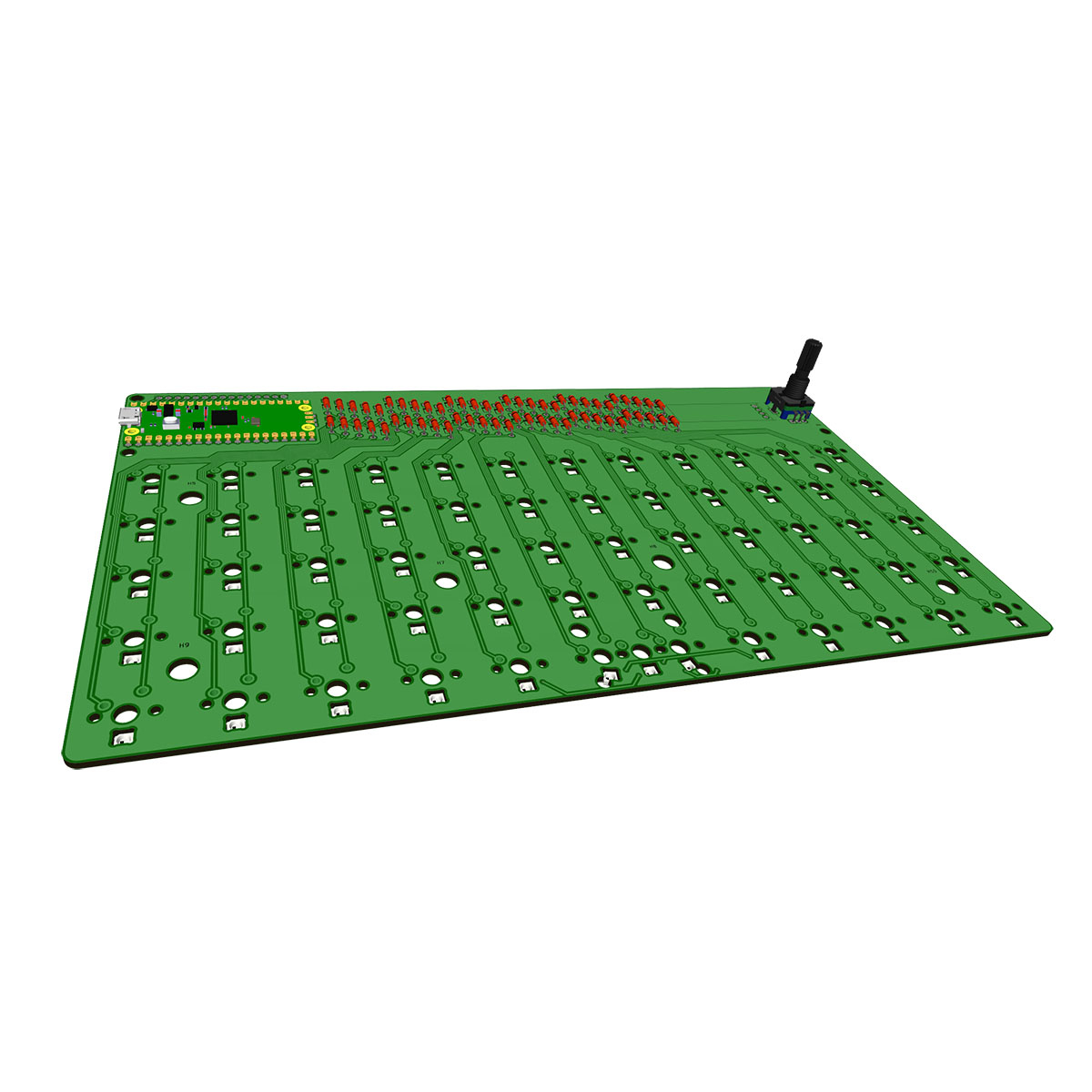
There’s seemingly no limit to what the Raspberry Pi community can do, and 1upKeyboards' latest development is no exception! Known for their custom keyboard kits, they’ve now got a couple of new kits powered by our favorite microcontroller—the Raspberry Pi Pico. These kits feature an ortholinear design and mechanical switches so you can easily map out your dream keyboard.
The new kits are called the Pi50 ($35) and Pi40 ($30). Both are already available for purchase on the official 1upKeyboards website. There are plenty of upgrade options for different shells, keycaps, etc., but both have overlapping key features. The Pi50 and Pi40 both support per-key RGB lighting, sports room for a rotary encoder knob and can output to a .91-inch OLED display.
The Raspberry Pi Pico is an affordable microcontroller, but you might wonder how you can register so many key inputs with a limited amount of GPIO. The secret here is the use of a matrix. The Pico is attached to a custom PCB with a matrix layout for the keys to which the keys attach. When you press a key, the input is registered based on the column and row its location is relative to.


The base kits include the keyboard PCB and a choice of case. Optional components include a Pico module, diodes, an OLED display panel, a rotary encoder, LEDs, as well as mechanical switches. Since each keyboard user has their own preferences, there’s plenty of room for customization in the list of optional components. The primary difference between the Pi40 and Pi50 kits are the number of key inputs offered in each kit.
When you build the keyboard, you’ll notice that the 1upKeyboards website provides instructions. Part of the setup process involves the installation of firmware. In this case, the PCB utilizes QMK firmware. This is an open source tool for microcontrollers that allows users to operate custom keyboards like these.
If you’re looking for a fun Raspberry Pi project with a practical end product or just want to get a closer look at these Pico-powered mechanical keyboards, check out the kits over at the official 1upKeyboards website.







